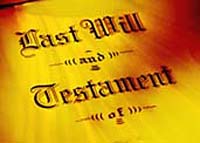 One of the biggest reasons not to act when you suspect elder abuse is taking place is simply not knowing what to do. We know who to call for domestic violence or when a child is being abused. But for an elderly neighbor? The same kind of help and the same anonymity is in place – something most of us just don't know.
One of the biggest reasons not to act when you suspect elder abuse is taking place is simply not knowing what to do. We know who to call for domestic violence or when a child is being abused. But for an elderly neighbor? The same kind of help and the same anonymity is in place – something most of us just don't know.
The Avery (NC) Journal-Times' recent article, "Safe steps when suspecting elder abuse," discusses suggestions from the North Carolina Division of Aging and Adult Services to put your mind at ease. In that state, people are encouraged to contact the local Adult Protective Services (APS), where a trained social worker will visit the neighbor and assess the situation.
Last year the state saw more than 24,000 reports of suspected abuse, neglect, or exploitation, which indicates that many individuals did do something to help their neighbors. But the national statistics say that only 1-in-5 incidents of elder abuse get reported. As a result, many incidents may have gone without any help.
North Carolina's laws require that anyone having reasonable cause to believe that a disabled adult is in need of protective services must make a report to the local Department of Social Services (DSS) APS unit. DSSs are statutorily mandated to receive information reported and determine if the report satisfies the criteria for evaluation. North Carolina law protects adults with disabilities age 18 and older, but the majority of reports involve those who are 60 years of age and older.
 Let's continue addressing a series of money decisions from Forbes' "10 Financial Choices You'll Regret in 10 Years," regarding financial choices we make in the earlier part of our lives that are surprisingly important—but we don't always see how important they are until it is too late.
Let's continue addressing a series of money decisions from Forbes' "10 Financial Choices You'll Regret in 10 Years," regarding financial choices we make in the earlier part of our lives that are surprisingly important—but we don't always see how important they are until it is too late.



























